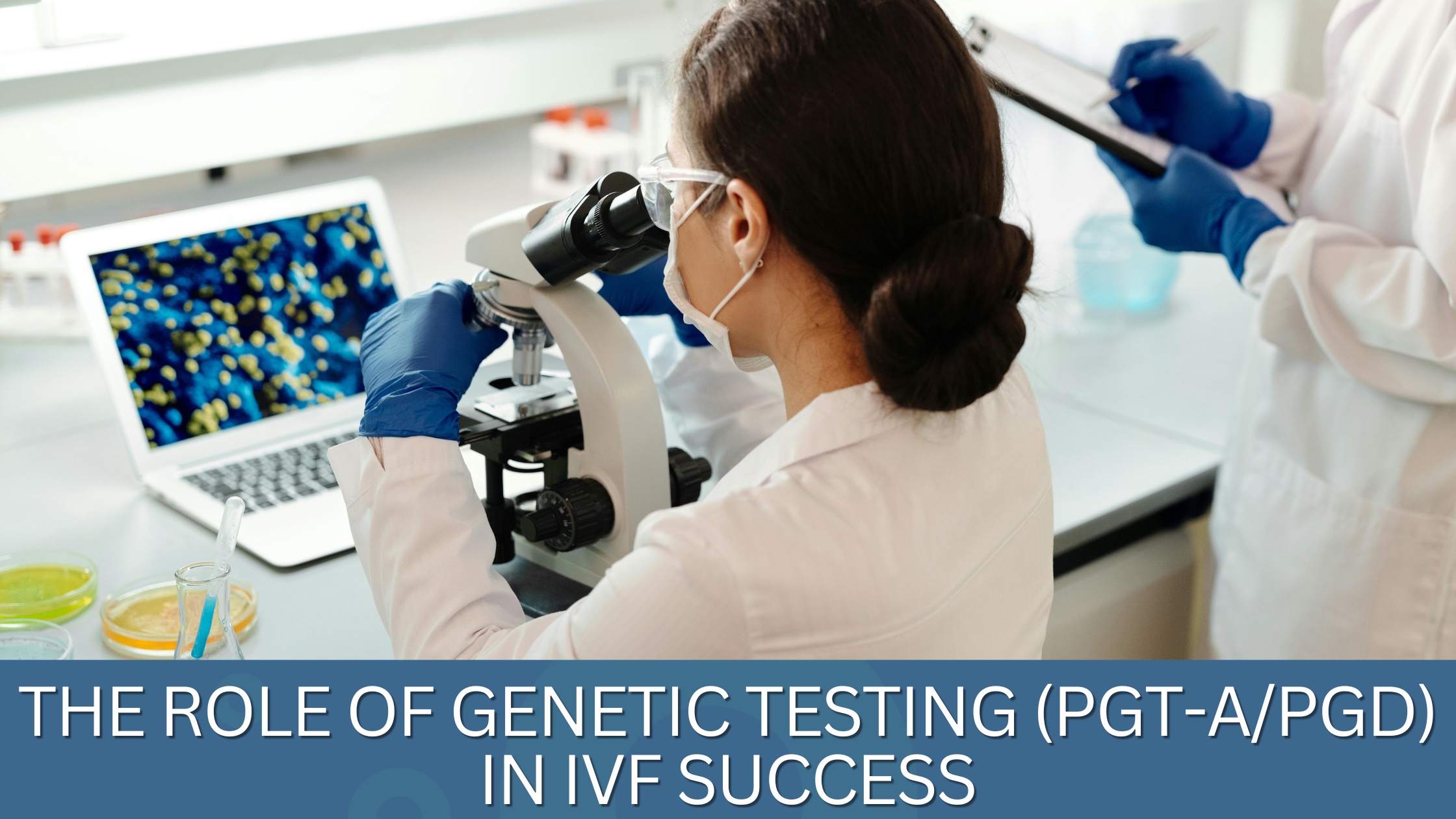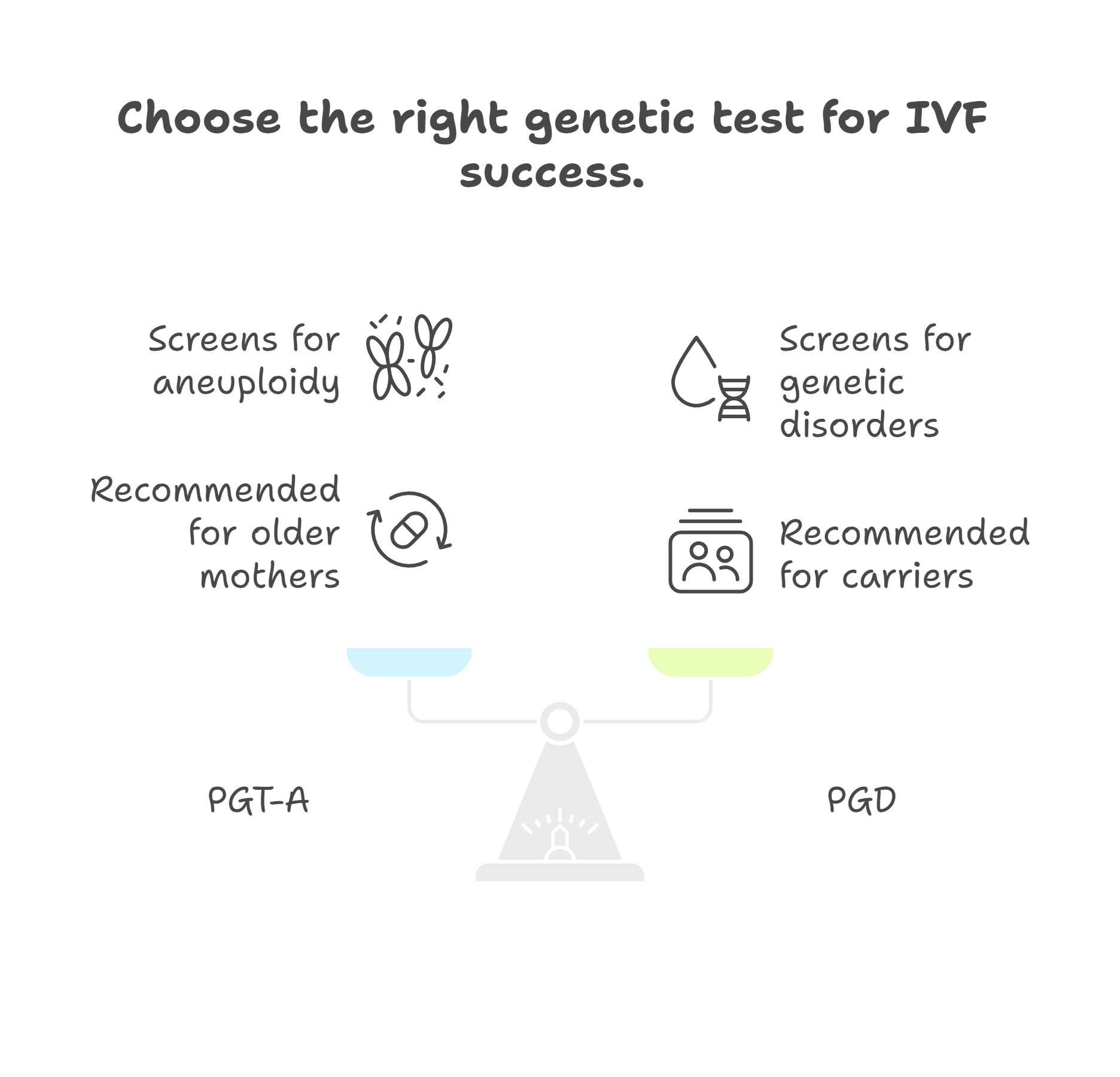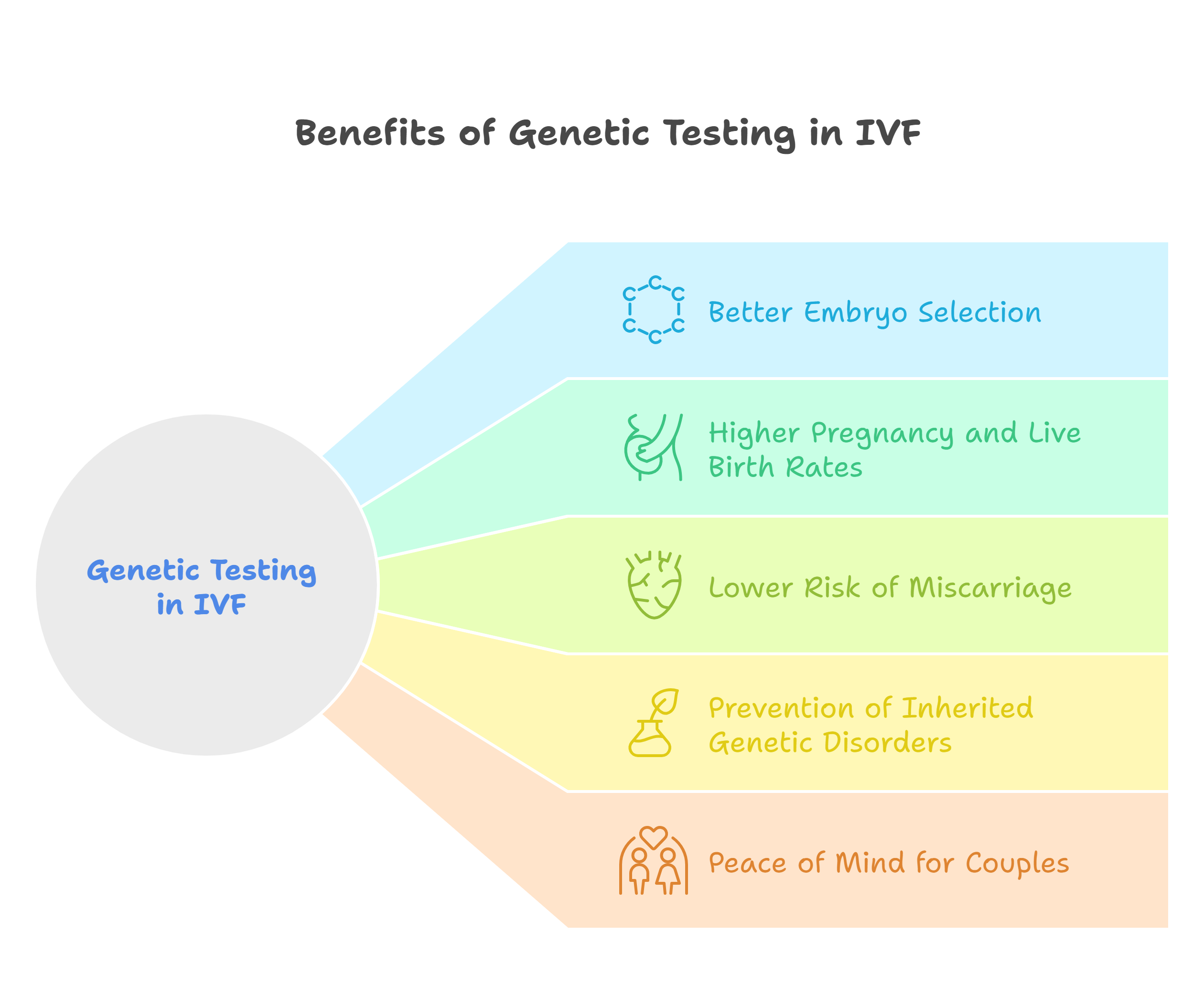
If you are facing fertility challenges, don’t be disheartened; you are not alone. Around 60–80 million couples suffer from infertility globally, out of which 15–20 million are in India. Like many other couples, you might be considering different fertility treatment options like IVF, ICSI, IUI, etc. You can even check out our blog here to find the best option for you.
In Vitro Fertilization (IVF) gives hope to countless couples looking to start a family. Though IVF can help you in your journey to becoming a parent, it is not as easy and straightforward. You might have to face failed IVF cycles or lose a pregnancy. Going through something like this can be very painful and challenging.
But don’t worry, there are some techniques like Preimplantation Genetic Testing for Aneuploidies (PGT-A) and Preimplantation Genetic Diagnosis (PGD) that help refine the embryo selection process and improve your chances of a healthy pregnancy.
What Is Genetic Testing in IVF?
Before we go any further, let us first understand what genetic testing is. During IVF, doctors may recommend genetic testing. They examine the embryos for abnormalities and select only those with 46 chromosomes and no inherited genetic conditions for transfer. This increases the chances of implantation as well as the chances of the embryo growing into a healthy baby.
There are two main types of genetic testing: Preimplantation Genetic Testing for Aneuploidy (PGT-A) and Preimplantation Genetic Diagnosis (PGD). PGT-A focuses on checking for the right number of chromosomes, while PGD looks for specific inherited disorders.
Types of Genetic Testing Used in IVF
Depending upon your situation, your doctor will recommend either PGT-A or PGD. Let us have a look at how they differ from each other.
Preimplantation Genetic Testing for Aneuploidies (PGT-A)
In PGT-A, the embryos will be screened for aneuploidy, which means missing or extra chromosomes. This test is especially helpful if you are over 35, as the risk of chromosomal errors increases with age. It is also often recommended for couples who have faced failed IVF cycles.
Preimplantation Genetic Diagnosis (PGD)
PGD screens the embryo for specific inherited genetic disorders. Doctors usually recommend it if you or your partner carries a known genetic condition such as thalassemia, sickle cell anemia, or cystic fibrosis. PGD can check embryos for those exact mutations, ensuring that only the embryos without the disease are transferred. It reduces the risk of passing on inherited disorders to the next generation.

Why PGT-A and PGD matter in IVF?
Chromosomal abnormalities in embryos are one of the main reasons why some IVF cycles fail or lead to miscarriages. In fact, studies suggest that approximately 50% of miscarriages are due to chromosomal abnormalities. As the age of the couples increases, the risk of aneuploidy, i.e., having a lower or higher number of chromosomes than normal, increases.
Doctors can use PGT-A and PGD to identify which embryos are genetically healthy and most likely to implant successfully. Apart from improving plantation rates, PGT-A reduces the risk of miscarriages. Genetic testing can have emotional benefits for couples as well. Going through this process makes you feel more confident as you know that the embryos being transferred have been carefully screened.

Who Should Consider PGT-A/PGD?
Genetic testing is not always necessary for every IVF case, but there are certain situations where it can make a significant difference. Doctors often recommend PGT-A or PGD when they identify risks that could affect embryo health. Some common scenarios include:
- Couples with multiple failed IVF attempts
If earlier cycles did not work despite transferring good-quality embryos, genetic testing can help uncover whether chromosomal issues were the hidden cause.
- Women over the age of 35
As women get older, the chances of chromosomal abnormalities in eggs increase. PGT-A helps ensure that only the healthiest embryos are chosen for transfer.
- Couples with a family history of genetic diseases
- Families affected by conditions such as thalassemia or cystic fibrosis can use PGD to ensure they do not pass these disorders on to their child.
- Patients with recurrent miscarriages
Losing a pregnancy more than once can be devastating. In many cases, miscarriages are linked to chromosomal problems. PGT-A can reduce this risk by identifying healthy embryos.
- Male infertility cases
Sometimes, sperm abnormalities can increase the likelihood of genetic errors in embryos. Testing helps detect these issues early.
For many couples, IVF is a journey filled with hope, patience, and resilience. Adding genetic testing through PGT-A or PGD can make this journey smoother by increasing the chances of success and reducing the risks that often bring heartbreak. These advanced techniques help doctors identify the healthiest embryos, prevent certain genetic conditions, and give couples a stronger sense of confidence moving forward.
While PGT-A and PGD cannot promise a 100 percent outcome, they have proven to be valuable tools in improving IVF success rates.
At London IVF, we are committed to supporting every couple with the latest technology, compassionate care, and personalized guidance. If you are considering IVF or want to explore whether PGT-A or PGD could help in your journey, book a consultation today.



